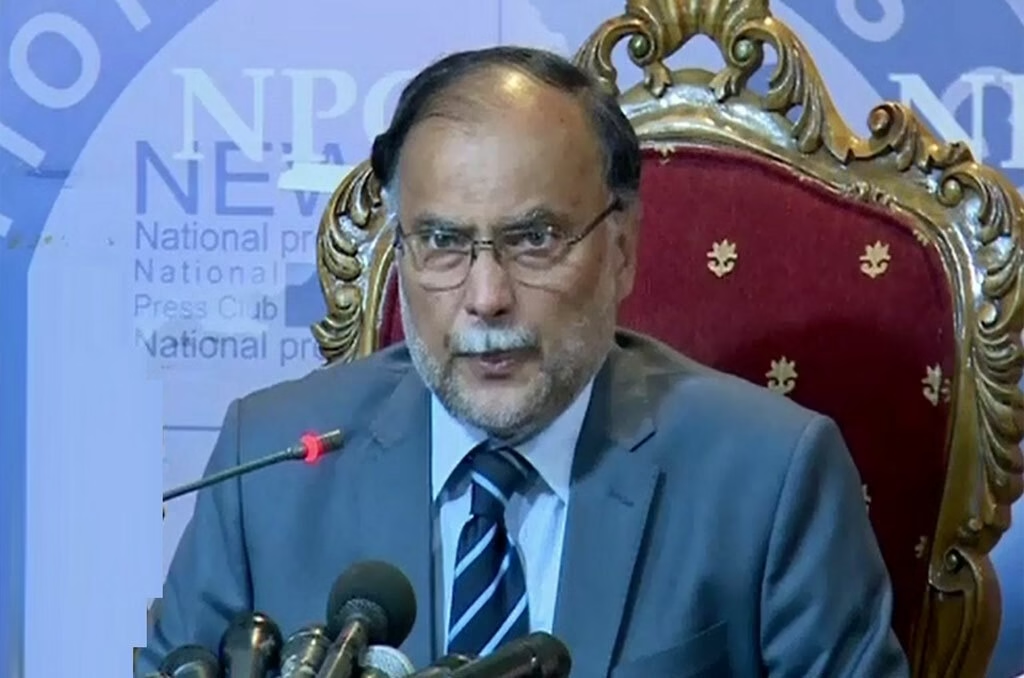The Lahore High Court (LHC) has raised a critical query regarding the omission of the word ‘Honorable’ before the Chief Justice’s name in the notification for the appointment of new judges. Justice Farooq Haider of the Lahore High Court presided over the hearing, directing the Advocate General Punjab to provide judicial assistance on the matter.
This development came as part of a contempt of court petition filed by Afaq Ahmed Advocate, which questioned the validity of the notification issued by the Secretary of the Judicial Commission, Niaz Muhammad Khan. The petitioner argued that omitting the title ‘Honorable’ before the Chief Justice’s name violated legal and judicial norms.
Court Seeks Judicial Assistance
During the hearing, Justice Farooq Haider focused on clarifying the legal requirements surrounding the official designation of judges. The court specifically directed the Advocate General Punjab to assist the judiciary by referencing relevant decisions from higher courts that establish precedence for such cases.
The directive highlights the importance of maintaining the decorum and respect associated with judicial designations, particularly in official documents like notifications. By seeking judicial assistance, the Lahore High Court aims to ensure that procedural standards are upheld while also clarifying any ambiguity in the legal framework.
The Petitioner’s Argument
The petition filed by Afaq Ahmed Advocate emphasized that the notification for the appointment of new judges failed to include the title ‘Honorable’ before the Chief Justice’s name, which the petitioner claimed is a legal and formal requirement. According to the petition, the absence of the title reflects a lapse in procedural integrity and disrespects the office of the Chief Justice.
The petitioner further argued that such omissions set a concerning precedent and undermine the sanctity of judicial offices. Therefore, the petition urged the court to initiate contempt of court proceedings against Secretary Judicial Commission Niaz Muhammad Khan for issuing what it described as a “vague notification.”
Registrar’s Office Responds
The Registrar’s Office, however, raised objections to the petition, stating that the notification was issued correctly and in accordance with legal procedures. The office argued that the application was inadmissible and lacked sufficient grounds for further proceedings.
This conflicting stance between the petitioner and the Registrar’s Office adds a layer of complexity to the matter. It also underscores the need for judicial clarity on whether including ‘Honorable’ in such notifications is a binding legal requirement or a matter of formal convention.
Importance of the ‘Honorable’ Title
The title ‘Honorable’ holds significant importance in judicial circles. It is a term that symbolizes respect, integrity, and the authority vested in judges and judicial institutions. By including ‘Honorable’ in official notifications, the judiciary reaffirms its commitment to upholding the dignity of its offices.
Omitting the title, even unintentionally, can be perceived as a lapse in maintaining the formal decorum associated with judicial processes. It is this perception that the petitioner highlighted, calling for corrective measures to ensure that such lapses are not repeated.
Legal and Procedural Implications
The controversy raises pertinent questions about procedural accuracy in the issuance of official documents. It also brings attention to the broader legal framework governing the formal designation of judges.
By directing the Advocate General Punjab to provide judicial assistance, the Lahore High Court seeks to determine whether existing laws or judicial decisions explicitly mandate the inclusion of ‘Honorable’ in notifications. This clarification will not only resolve the current dispute but also set a precedent for similar cases in the future.
If the court rules in favor of the petitioner, it could lead to stricter oversight in the drafting and issuance of judicial notifications. On the other hand, if the court finds no legal basis for the petitioner’s argument, it would affirm the validity of the current notification and dismiss the petition.
Upholding Judicial Decorum
The judiciary has always placed great emphasis on decorum, respect, and procedural integrity. The inclusion of ‘Honorable’ before judges’ names is more than just a formality; it is a reflection of the respect accorded to the judiciary as a pillar of the state.
The current case, while seemingly minor, highlights the importance of adhering to established norms and procedures. It also serves as a reminder to administrative bodies to exercise diligence in issuing official documents that reflect the dignity of judicial offices.
Way Forward
As the Lahore High Court continues to deliberate on the matter, the outcome of the case will provide clarity on the procedural requirements for judicial notifications. The Advocate General Punjab’s assistance will play a crucial role in helping the court determine whether the omission of ‘Honorable’ constitutes a procedural violation.
For now, the case underscores the importance of precision and respect in all matters related to the judiciary. Whether the court finds the omission to be a minor oversight or a significant lapse, its decision will set a precedent for ensuring procedural integrity in the future.
The Lahore High Court’s directive to seek judicial assistance on the omission of ‘Honorable’ in the judges’ appointment notification has sparked an important debate about procedural standards and judicial decorum. While the petitioner calls for accountability, the Registrar’s Office maintains that the notification was correctly issued.
As the court seeks clarity, this case serves as a reminder of the importance of respecting judicial offices and adhering to established norms. The decision will not only resolve the current dispute but also strengthen the procedural integrity of future judicial notifications.



